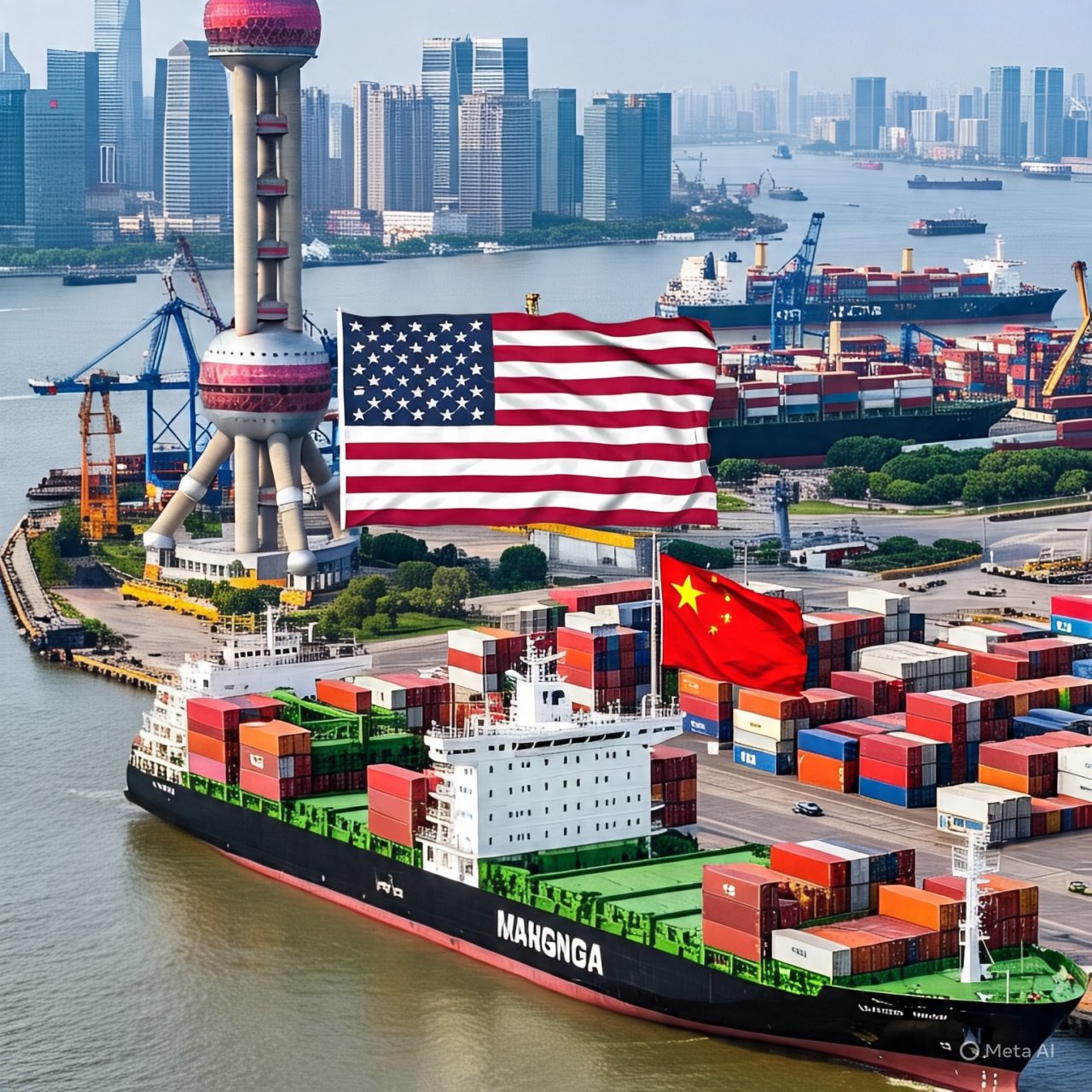Thursday, 5 March 2026
US and China agree to suspend tariffs in bid to reset trade ties
According to a joint statement, both sides will suspend 24 percentage points of the additional ad valorem tariff rates they had imposed on each other’s goods, initially for 90 days…

According to a joint statement, both sides will suspend 24 percentage points of the additional ad valorem tariff rates they had imposed on each other’s goods, initially for 90 days
In a significant move aimed at easing tensions and revitalising bilateral ties, the United States and China have jointly announced the suspension of key tariff measures imposed in April 2025. The development comes as both nations commit to a fresh round of dialogue to stabilise and improve their economic and trade relationship.
According to a joint statement, both sides will suspend 24 percentage points of the additional ad valorem tariff rates they had imposed on each other’s goods, initially for a period of 90 days, while maintaining a 10 per cent residual tariff. The tariff suspensions will take effect no later than May 14, 2025.
From the U.S. side, the suspension covers tariffs imposed under Executive Orders 14257, 14259, and 14266, affecting goods from China, including from Hong Kong and Macau. In return, China will suspend similar tariffs outlined in Customs Tariff Commission Announcement No. 4, and fully remove duties added in Announcements No. 5 and 6. Additionally, China has pledged to roll back non-tariff retaliatory measures enacted since April 2.
“The actions taken today are a critical step toward restoring trust and predictability in U.S.-China trade relations,” said Scott Bessent, the U.S. Secretary of the Treasury. “We are hopeful this pause creates the space needed for constructive dialogue.”
China’s Vice Premier He Lifeng echoed the sentiment, stating, “Through mutual respect and continued engagement, we believe this process will foster a more balanced and sustainable trade partnership.”
The agreement also outlines the formation of a new bilateral mechanism to facilitate ongoing discussions on trade and economic issues. These high-level talks will alternate between both countries, with Vice Premier He Lifeng representing China, and Secretary Scott Bessent alongside U.S. Trade Representative Jamieson Greer representing the United States. Working-level consultations will also be held as needed to address specific issues.
Analysts view the move as a cautious but welcome thaw in trade relations that have been strained by years of escalating tariffs and trade restrictions.
Markets in both countries responded positively to the announcement, with investor sentiment buoyed by hopes of a more stable trade environment going forward.
Technology
Copeland Launches ZF/ZFI 10-20HP Scroll Compressors
Mar 05, 2026 | Company News
WA Scientists Discover New Deep-Sea Crustacean Stocks with Strong Commercial Potential
Mar 05, 2026 | Australia
Food Testing
NSF and Circle H Collaborate to Enable Global Certification Access
Mar 04, 2026 | Company News
Australian Medical Bodies Push for Compulsory Health Star Labelling
Feb 24, 2026 | Australia
Tim Hortons Singapore Secures Majlis Ugama Islam Singapura Halal Certification Ahead of Ramadan
Feb 23, 2026 | Company News
More Popular
Copeland Launches ZF/ZFI 10-20HP Scroll Compressors
Mar 05, 2026 | Company News
Singapore Expands Support for Local Farms to Strengthen Food Security
Mar 05, 2026 | Food Security






